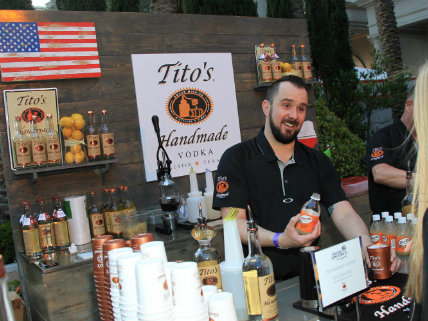Class-action lawsuits over food marketing practices have skyrocketed in the past decade, from around 20 at the federal level in 2008 to 118 such suits filed in 2015 and 171 last year. The single most frequent complaint relates to foodmakers’ use of terms like natural or nothing artificial, with suits challenging extra space in product packaging also common, according to a new report the Institute for Legal Reform (ILR). Yet far from signaling a wave of action in the consumer interest, these suits are often a sort of legal spam, mass-filed by attorneys and firms that specialize in the practice and collect significant fees for their work while plaintiffs might make out with a few product vouchers. And not only do they deal in frivolous issues far-removed from consumer safety or justice, they also threaten to drive up product prices and drive small companies out of business.
According to ILR, a nonprofit research affiliate of the U.S. Chamber of Commerce, this “surge” of class action food-marketing litigation is largely driven by “a small cadre of class action lawyers” and a small number of U.S. law firms. “There are now hundreds of active food class actions in the federal courts and more in state courts,” states ILR’s new report, The Food Court: Trends in Food and Beverage Class Action Litigation. “A few are so laughable that courts have quickly thrown them out. Some are withdrawn or dismissed, typically as a result of a private settlement.” But “many more are litigated for years,” culminating in “multi-million dollar settlements that line the pockets of lawyers, but provide little or no benefit to consumers.”
Why no benefit to consumers? In part, it’s beause many cases are ultimately settled out of court, leading to a payout for individual plaintiffs and their lawyers but no change to the allegedly underlying issues. Meanwhile, the price-tag to litigate and settle these cases can be huge for U.S. businesses, and get passed on to all consumers via higher product prices. And at the same time, the consumer “protections” at the heart of many food-marketing lawsuits are the sort most shoppers are likely to find silly, based more on technicalities and theoretical-confusion than any actual consumer objections or corporate intent to mislead.
Want an example? According to ILR’s research, 50 class-action suits were filed in 2016 over Parmesan-cheese bottles labeled “100% grated Parmesan cheese” that also contain a small amount (2-4 percent) of cellulose, a natural, FDA-approved food-additive that keeps cheese from clumping and is listed on label Ingredient sections. Here are nine more complaints from ILR’s catalogue of food-marketing cases gone wild:
Even complaints that are untrue or lack evidence may prove cheaper for big companies to settle than fight in court, leading to large payouts for lawyers but little in the way of benefits to either the plaintiffs or consumers at large. For instance, in one 2013 case, StarKist was accused of under-filling five-ounce tuna cans and denied the charge but, after two years of litigation, agreed to a $12 million settlement, approved in September 2016. The firm representing the class-action suit was awarded $3.6 million in fee compensation. American consumers who purchased a 5-ounce can of Starkist tuna between February 2009 and October 2014 were eligible for a $1.97 or $4.43-worth of tuna vouchers.
At the federal-court level, the vast majority of these suits are brought in just four states: California (with 36 percent of all such suits), New York (22 percent), Florida (12 percent), and Illinois (7 percent). “Typically, lawyers who bring food class actions draft the complaints first, and only later find a client,” according to ILR’s research. “It is not uncommon for the named plaintiffs in food class action lawsuits to be family members, employees, or others with close ties to the network of lawyers and law firms that file the complaints.” Overall, the copycat complaints and practices ILR uncovered led its researchers to conclude that these lawsuits are primarily “driven by lawyers as a money-making enterprise,” and do “not respond to consumer concerns.”
Source: reason.com





Be the first to comment on "10 Ridiculous Recent Food-Marketing Lawsuits"